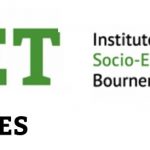 Thursday 21st January 4pm – 6pm
Thursday 21st January 4pm – 6pm
Exploring the chaîne opératoire of applied long-term human ecodynamics: examples from the human paleocology of Subarctic and Arctic seas.
Book your place in the seminar with Professor Ben Fitzhugh, Department of Anthropology, University of Washington.
Professor Fitzhugh’s research focuses on human-environmental dynamics and archaeological histories of maritime/coastal hunter-gatherers especially in the North Pacific. His research addresses questions of human vulnerability and resilience in remote subarctic environments.
Researchers studying long-term human ecological histories increasingly promote the relevance of this work to contemporary environmental managers, policy makers, and heritage communities. After all, our case studies and comparative insights capture greater ranges of socio-environmental variation and longer temporal sequences than are available to planners tethered to the short observation scales. These longer time-lines and more varied “completed experiments of the past” make it possible to track dynamic relationships and downstream legacies driving more and less sustainable strategies and relationships. This information should help us to avoid the mistakes of the past and to build policy on robust understandings about the capacities of systems for stability and change. Nevertheless, meaningful engagement remains limited. If we are serious about this effort, we owe it to ourselves to examine the practical challenges and paths to solutions to implementation of applied long-term human ecodynamics. For this talk, Professor Fitzhugh will expand on the need for a “chaîne opératoire of applied long-term human ecodynamics.” Chaîne opératoires are the inferred technical steps perceived to govern the production, use and discard of technological objects like stone tools, and his argument here is that we could stand to investigate the impediments and limitations of practice that keep academic work at arms length from management policy. Using climate, marine ecological and archaeological case studies from the subarctic North Pacific, he will explore key steps involved in forming and bringing compelling human ecodynamic scenarios of the past into dialogue with contemporary management science and policy. These steps involve managing data uncertainties, unequal resolutions and relevance, disparate interpretive constructs, and epistemic and ontological asymmetries.
Professor Fitzhugh is currently Director of the Quaternary Research Center at the University of Washington, and in this role, seeks to promote interdisciplinary scholarship in the evolution of the earth surface (and the role of humans in it) over the past two and a half millions years.
https://anthropology.washington.edu/people/ben-fitzhugh
Professor Fitzhugh will speak for approximately 1 hour, followed by Q&A.
Book a place at this seminar via eventbrite.
 IMSET Seminar – Human adaptation and coastal evolution in northern Vietnam
IMSET Seminar – Human adaptation and coastal evolution in northern Vietnam










 REF Code of Practice consultation is open!
REF Code of Practice consultation is open! BU Leads AI-Driven Work Package in EU Horizon SUSHEAS Project
BU Leads AI-Driven Work Package in EU Horizon SUSHEAS Project Evidence Synthesis Centre open at Kathmandu University
Evidence Synthesis Centre open at Kathmandu University Expand Your Impact: Collaboration and Networking Workshops for Researchers
Expand Your Impact: Collaboration and Networking Workshops for Researchers ECR Funding Open Call: Research Culture & Community Grant – Apply now
ECR Funding Open Call: Research Culture & Community Grant – Apply now ECR Funding Open Call: Research Culture & Community Grant – Application Deadline Friday 12 December
ECR Funding Open Call: Research Culture & Community Grant – Application Deadline Friday 12 December MSCA Postdoctoral Fellowships 2025 Call
MSCA Postdoctoral Fellowships 2025 Call ERC Advanced Grant 2025 Webinar
ERC Advanced Grant 2025 Webinar Update on UKRO services
Update on UKRO services European research project exploring use of ‘virtual twins’ to better manage metabolic associated fatty liver disease
European research project exploring use of ‘virtual twins’ to better manage metabolic associated fatty liver disease